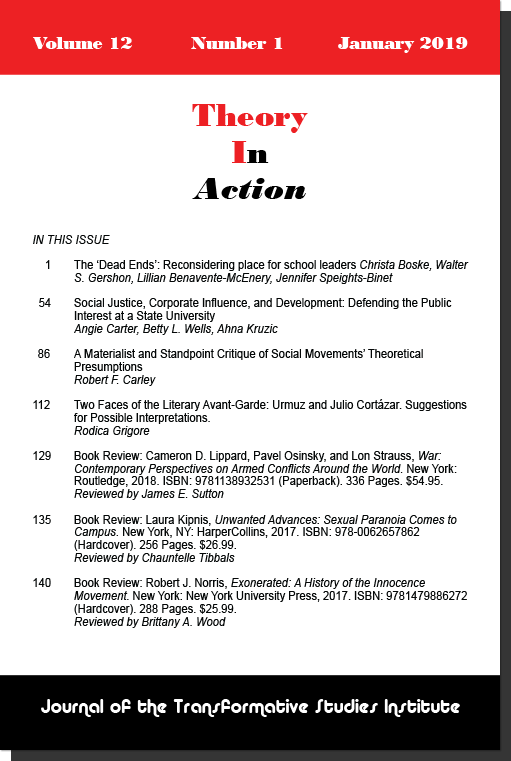Richard Kahn
Peter Lang Publishing (2010)
Reviewed by Godfrey Mnubi
As globalization penetrates the hearts and souls of many lives and as transnational capitalist interests work beyond the sovereignty of many states to weaken both socioeconomic and environmental regulations, accelerating people’s impoverishment along with ecological catastrophe as a result, the world needs revised thinking and action. Richard Kahn offers a new paradigm for understanding and teaching against global corporatism’s foundational role in the current planetary crisis.
In Critical Pedagogy, Ecoliteracy & Planetary Crisis, Kahn describes some of the root causes and possible solutions for the socioeconomic and ecological disasters the planet is facing in great detail. Particularly, he examines the interconnectedness of planetary, nonhuman species, and human activities that have created ecological tension, as well as socioeconomic and political instability due to unsustainable economic exploitation of nature and unsound cultural practices that have a negative social impact overall.
Kahn warns planetary communities against the increased overuse and extraction of nature as a resource and the dangerous increase in carbon emissions largely responsible for global warming. He further chronicles the increased global desertification occurring as a result of agricultural practices, such as the planet has not seen during the last 150 years combined (p.2). Moreover, Kahn speaks to unsustainable fishing practices that have contributed to great losses of global mangroves, reducing them to approximately 35 percent during the second half of the twentieth century. These astonishing figures of grave natural exploitation and the extinction of life that corresponds with it fill page after page of the book’s opening salvo.
Yet, building an ecopedagogy upon great educational theories from people such as Ivan Illich, Paulo Freire, and Herbert Marcuse, Kahn challenges hegemonic thinking and demonstrates the missing link between global capitalism and the planet in peril. Further, he critically examines the dialectical link between our mainstream lifestyles and the dominant social structure, showing how this applies to education and its role in fomenting additional ecocrisis. In reply, he argues that we need a “more radical and more complex form of ecoliteracy than is presently possessed by the population at large” (p. 6). This requires a critical examination of cosmological, technological and scientific transformations as they apply to broad social illiteracies as regards the media, politics, and the potentials in play for a sustainable society.
In his own words, Kahn emphasizes that “the major goal for ecopedagogy must involve people in large scale resistance movements to actively transform mainstream understandings, policies, and practices of techno literacy through the politicization of the hegemonic norms that currently pervade social terrains” (p.63). This requires citizens to formulate ways to create and use technologies to realize a critical oppositional ecopedagogy that serves the interests of the oppressed, as they aim at the democratic and sustainable reconstruction of technology, education, and society itself (p. 79).
Kahn also urges educators to confront unsustainable ecological exploitation and corporate interests that work against the moral health of an emerging planetary community. This requires commitment and courage. Thus, he ends his book with a courageous citizenship parable of Judi Bari, the “ecofeminist, social justice leader and social change revolutionalist” who worked tirelessly on campuses and in grassroots communities to encourage sustainable political and socioeconomic involvement on the part of people. As he relates, even after Bari was car-bombed in 1990, which left her with a shattered pelvis and shrapnel in her body such that she lived out the rest of her life in severe pain, and even in the midst of great harassment and humiliation she encountered from the Federal Bureau of Investigation (FBI) and police force, Judi Bari never gave up the fight she believed in.
As I read this book and relate it to the political and socioeconomic structures of developing countries in Africa, I see the relevance of the ecopedagogy’s paradigm. There, many political and socioeconomic conflicts are a result of the over-exploitation of nature, which is the foundation of survival in most of our African societies. Joining in this battle to save the planet will ultimately enhance the quality of life of many Africa states and build peace and stability for present and future generations.
In terms of understanding the challenges posed by the current ecological devastation and planetary crisis to sustainability, this is an important book that one should read. Whether you are a student, educator, social activist, or policy maker, this book will wake you up from your deep sleep and spark you to learn more and begin educating others on these issues in order to achieve change.
